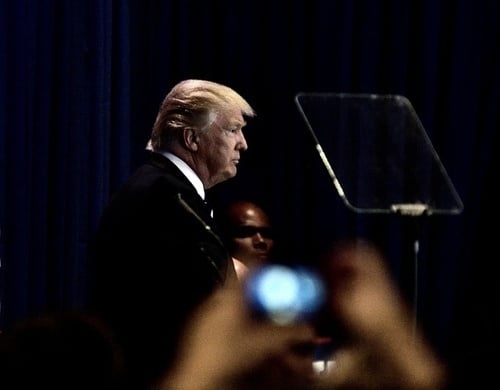Head of ETFs at First Trust Portfolios explains the significance of Crapo Act on banks’ fundamentals

Financials should be on investors’ agenda because of the Crapo Act and President Donald Trump’s strategy to win the 2020 election.
In the final article in WP’s series with Karl Cheong, head of ETFs at First Trust Portfolios, he explained why the banks represent value – and why the deregulation trend is set to continue as Trump attempts to stimulate the economy and stock market.
As well as his views on why the bond market has it wrong for 2019 and why healthcare is a must for investors, Cheong is similarly bullish on the factors at play that give financials such a good runway as we kick off the new year.
He said the fact financials have sold off so dramatically because of the flattening yield curve creates a buying opportunity.
“For Trump to win [the 2020 election] he is not going to win on his personality; he is going to win on the economy and stock market, and because of this he needs the banks to lend.
“So investors will have a big tailwind over time when he is president because of a piece of legislation called the Crapo Act.”
Signed in by Trump, and sponsored by Republican Idaho senator Mike Crapo in March last year, the Bill rewrote parts of the 2010 Dodd-Frank Act, the financial regulation overhaul that was a response to the 2008 financial crisis. It adjusted the size, from $50 billion to $250 billion, at which banks are subject to certain regulatory scrutiny and exempt small banks from some requirements for loans, mortgages and trading.
Crapo’s involvement stemmed from a number of farmers in his district being unable to get loans for equipment because of the restrictions that deemed larger banks “too big to fail”.
Cheong said: “[The Crapo Act] has freed up a good portion of the banks in order to create economic activity. Some of these banks are big compared to Canada's but in the US they are midcap - here they’d be the size of RBC.
“These banks have received consolidation in this space because of the regulatory purse strings [being loosened]. This is a trend you are going to keep seeing.
“Trump needs stimulative growth; he can’t have the banks horde all the cash and not stimulate the economy. He needs the stock market to do well and then wages to do well. He’s going to run on that – a strong economy and stock market.”
The divisive political strategy of Trump has often been the cause of waves through the markets – both good and bad. His corporate tax cuts boosted earnings and rewarded investors but the simmering tensions he has created with trade negotiations have caused uncertainty.
Despite the furore and headline impact, however, Cheong said investors must always focus on the fundamentals.
“With financials, because they have been sold off so much, it’s the cheapest sector in the market and its earnings growth is one of the highest. That’s where on the fundamental side we’re pounding the table because given its current valuation relative to history, some of the banks are trading so cheap it’s hard to ignore.”
Cheong also suggested that many people do not realize the control Trump has on the regulatory budget.
He said: “Trump’s agenda is interesting. He’s got levers that people don’t fully appreciate to win the 2002 election … this is what it’s all about.
“Trump has control of the regulatory budget and experts say that the regulator budget costs companies and individuals about $2 trillion – that’s a huge amount. Trump, being head of the executive office, means he has control of this budget. One way Trump will continue to stimulate is via deregulation and that is something he doesn’t necessarily need bipartisan support for.”



